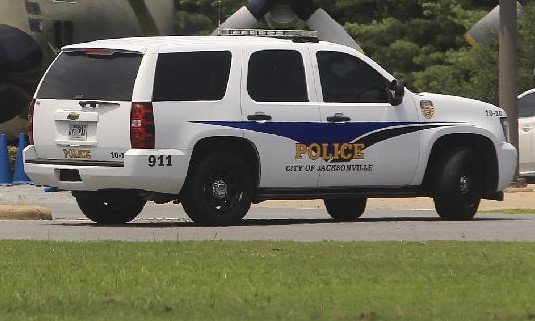Amid national discussions about police accountability, the Jacksonville Police Department, with backing from community organizations, has joined a program intended to prevent police misconduct, avoid policing mistakes and look out for officers' well-being.
The department announced last week that they had joined Georgetown University Law Center's Active Bystandership for Law Enforcement Project, which encourages officers to step in when they see other officers struggling or mishandling a situation, preventing harm to police and the community, according to a news release.
The ABLE Project sets 10 standards for participating agencies, including requirements for community support, training for all officers, an anti-retaliation policy for those who intervene, wellness programs for officers and an ongoing commitment to the standards.
The program requires not only a commitment to cultural change by Chief Brett Hibbs and Mayor Bob Johnson, but also letters of support from two community groups to affirm the agency's commitment. Jacksonville NAACP President Barry Jefferson and Evangelistic Ministries Church Senior Bishop James E. Bolden III wrote letters in support.
"After carefully reading the [ABLE] Project standards, we are in full agreement with the purpose, desire and need for the Jacksonville Police Department to be a participant in this program," Jefferson wrote.
Jefferson sees the program as "a community-building positive step in the right direction for all involved to have continued trust and confidence in our town's law enforcement," he wrote.
ABLE has its origins in a 2014 New Orleans Police peer-intervention training program developed with Ervin Straub of the University of Massachusetts Amherst, according to the project's website.
The project has expanded rapidly, especially as the 2020 killing of George Floyd by Minneapolis police deepened a conversation about police accountability and change, ABLE Project Director Lisa Kurtz said. Over the past year, 180 agencies, including the Minneapolis Police Department, have joined the project.
The program's standards are key because "it's not a training program, it's a culture-change program," Kurtz said. Training just builds an atmosphere where intervening and accepting intervention are valued.
ABLE only works with agency leaders who have already committed to the standards, Kurtz said.
"If the chief's not on board, the change is not going to happen," she said.
Sgt. Charles Hughes, one of the department's trainers, has already had ABLE's instructor training, and has taught the first groups of officers, working the 8-hour course into their yearly training.
Officers get a lot of training in tactics and firearms, but not enough on talking to people, Hughes said. ABLE empowers officers to speak up, even if that involves confronting a senior officer or the chief himself, he said.
"We're trying to build back the trust with the community," Hughes said, noting that community support and ABLE's anti-retaliation requirement add transparency to process.
One of the training scenarios involves a young officer confronting a senior member of the force about a mistake during a patrol, preventing misconduct. Another has an officer speaking up noticing a change in a partner's demeanor related to a divorce, giving that struggling officer a chance to get help and prevent mistakes or self-harm.
"This could not only save an officer's career, this could save someone's life," Hughes said, adding that officer response to the training has been very positive.
Kurtz sees the project's goals -- avoiding mistakes, preventing misconduct and ensuring officer wellness -- as intrinsically linked. Officers who are taken care of and are free to admit and correct mistakes are going to be able to prevent misconduct more easily.
ABLE agencies have quarterly check-ins to ensure that they are keeping to the guidelines, Kurtz said.
Because of the quick growth of the program, which now includes 113,600 officers across 38 states and three Canadian provinces, ABLE is focusing on supporting the agencies currently involved, Kurtz said, although the project's leaders are meeting soon to lay out a plan for future growth.
